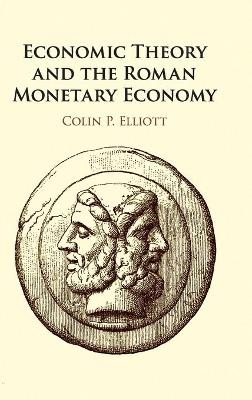
Economic Theory and the Roman Monetary Economy
Seiten
2020
Cambridge University Press (Verlag)
978-1-108-41860-7 (ISBN)
Cambridge University Press (Verlag)
978-1-108-41860-7 (ISBN)
Presents historians with new ways of thinking about and using economics to understand the Roman monetary system and the choices of those who used Roman money. Of interest to historians who study money in all historical periods, but especially those who study ancient Roman money.
Modern economics tantalizes historians, promising them a set of simple verbal and mathematical formulas to explain and even retrospectively predict historical actions and choices. Colin P. Elliott challenges economic historians to rethink the way they use economic theory. Building upon the approaches of Max Weber, R. G. Collingwood, Ludwig von Mises and others, Elliott reconceptualizes economic theories such as the quantity theory of money and Gresham's law as heuristic constructs - constructs which help historians identify and understand the unique modes of thought and embedding contexts which characterized economic action in the Roman Empire. The book offers novel analyses of key events in Roman monetary history, from Augustus' triumph over Mark Antony and Cleopatra, to third-century AD coinage debasements. Roman history has long been a battleground for polarizing methodological debates, but this book's accessible style and conciliatory tone invites historians, economists, sociologists and other scholars to use economic theory for understanding.
Modern economics tantalizes historians, promising them a set of simple verbal and mathematical formulas to explain and even retrospectively predict historical actions and choices. Colin P. Elliott challenges economic historians to rethink the way they use economic theory. Building upon the approaches of Max Weber, R. G. Collingwood, Ludwig von Mises and others, Elliott reconceptualizes economic theories such as the quantity theory of money and Gresham's law as heuristic constructs - constructs which help historians identify and understand the unique modes of thought and embedding contexts which characterized economic action in the Roman Empire. The book offers novel analyses of key events in Roman monetary history, from Augustus' triumph over Mark Antony and Cleopatra, to third-century AD coinage debasements. Roman history has long been a battleground for polarizing methodological debates, but this book's accessible style and conciliatory tone invites historians, economists, sociologists and other scholars to use economic theory for understanding.
Colin P. Elliott is an Assistant Professor in the Department of History at Indiana University, Bloomington. He has published interdisciplinary research on the economic, social and environmental history of the Roman Empire, and his next project explores intersections between its economy and the environment.
1. On writing Roman economic history; 2. Embedding contexts of Roman money; 3. Evidence and theory; 4. Rationality, purposefulness and action; 5. The meanings of money quantity and quality; 6. Understanding money use and value.
| Erscheinungsdatum | 21.02.2020 |
|---|---|
| Zusatzinfo | Worked examples or Exercises; 6 Line drawings, black and white |
| Verlagsort | Cambridge |
| Sprache | englisch |
| Maße | 156 x 234 mm |
| Gewicht | 430 g |
| Themenwelt | Geschichte ► Allgemeine Geschichte ► Vor- und Frühgeschichte |
| Geschichte ► Teilgebiete der Geschichte ► Wirtschaftsgeschichte | |
| Wirtschaft ► Allgemeines / Lexika | |
| Wirtschaft ► Volkswirtschaftslehre | |
| ISBN-10 | 1-108-41860-0 / 1108418600 |
| ISBN-13 | 978-1-108-41860-7 / 9781108418607 |
| Zustand | Neuware |
| Informationen gemäß Produktsicherheitsverordnung (GPSR) | |
| Haben Sie eine Frage zum Produkt? |
Mehr entdecken
aus dem Bereich
aus dem Bereich
Was Pompeji über uns erzählt
Buch | Hardcover (2023)
Propyläen (Verlag)
CHF 44,75
auf den Spuren der frühen Zivilisationen
Buch | Hardcover (2023)
C.H.Beck (Verlag)
CHF 27,95


